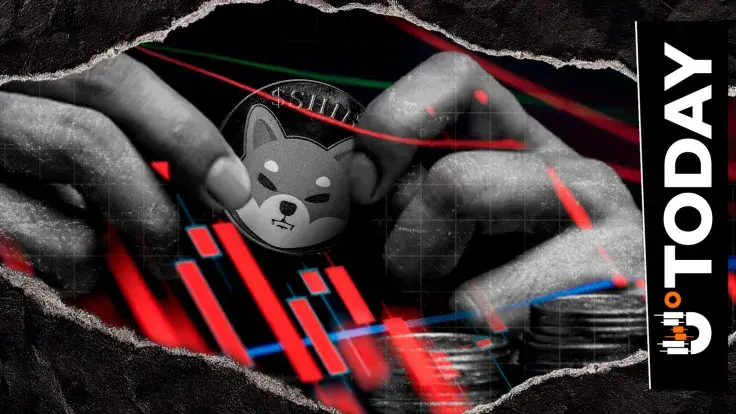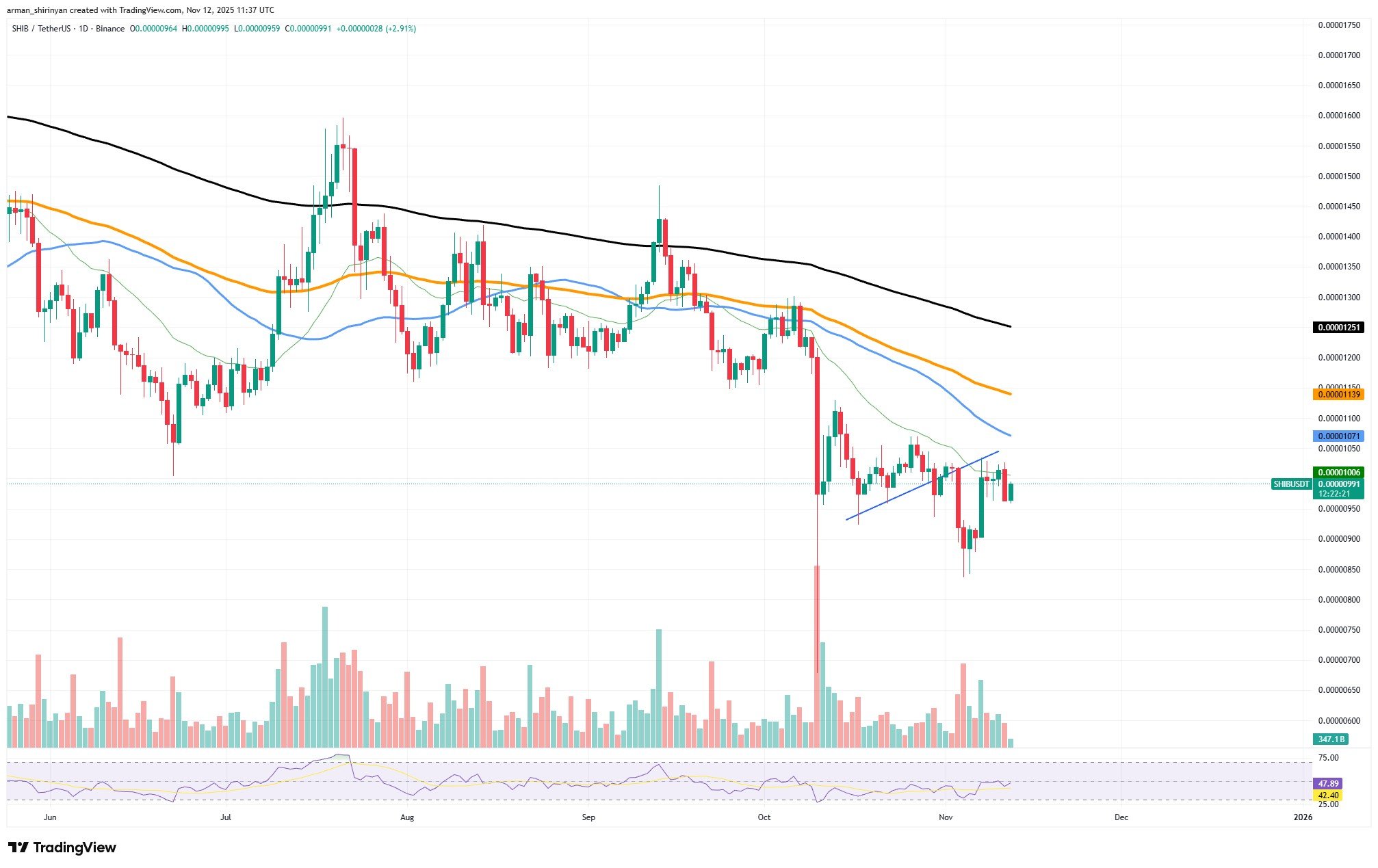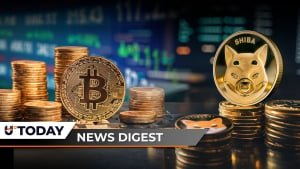
Disclaimer: The opinions expressed by our writers are their own and do not represent the views of U.Today. The financial and market information provided on U.Today is intended for informational purposes only. U.Today is not liable for any financial losses incurred while trading cryptocurrencies. Conduct your own research by contacting financial experts before making any investment decisions. We believe that all content is accurate as of the date of publication, but certain offers mentioned may no longer be available.
One of the most unexpected on-chain changes Shiba Inu has seen in months was a huge 397% increase in exchange outflows, indicating that investors are quickly removing their tokens from centralized platforms. The seven-day moving average of SHIB outflows has reached 2.36 billion tokens according to the most recent data, indicating a return to accumulation or long-term holding sentiment.
No sellside pressure yet
Such outflow spikes have historically preceded market recoveries because they show a reduction in sellside pressure. Technically speaking, SHIB has held steady at $0.00099, up roughly 3% over the past day. The token is rising off the local low around $0.0000085 on the daily chart, but the overall picture is still unclear.

Trading volume's contribution
The 50-day EMA near $0.0000107 continues to cap the price and $0.0000114, which has consistently rejected upward moves, presents more formidable resistance. In order to verify any significant trend reversal, the longer-term 200-day EMA at $0.0000125 continues to be the crucial threshold. The outflow surge is noteworthy due to its timing, which coincides with historically low trading volumes. This suggests nonspeculative purchasing, as opposed to quiet accumulation.
The RSI close to 48 indicates that SHIB is in a neutral zone, indicating conditions more akin to consolidation than breakout. Another rejection could cause the token to return to $0.0000090 if it is unable to pass the adjacent resistance cluster.
In conclusion, SHIB's 433% increase in outflows suggests that big holders might be covertly building up, which would limit downside risks and decrease exchange liquidity.
The market is still in a precarious balance, though, suggesting that even though exchanges may be bleeding, the rally still requires confirmation in the absence of increased buying volume or a clear move above important averages.


 Dan Burgin
Dan Burgin Vladislav Sopov
Vladislav Sopov